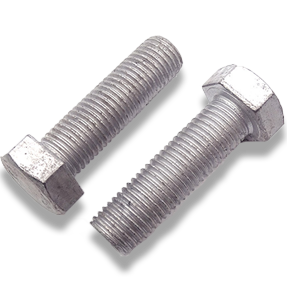

12mm stud bolt
Sep . 28, 2024 12:46 Back to list
12mm stud bolt
Understanding 12mm Stud Bolts Specifications, Applications, and Benefits
In engineering and construction, bolted connections play a crucial role in ensuring the stability and durability of structures. Among various fasteners available, the 12mm stud bolt is a common choice due to its versatility and strength. This article delves into the specifications, applications, and benefits of 12mm stud bolts, providing essential information for professionals in the field.
Specifications
A stud bolt is a long rod with threaded ends, typically manufactured from high-strength materials like carbon or alloy steel. The designation 12mm refers to the nominal diameter of the bolt, which is 12 millimeters. This size is often used in conjunction with appropriate nuts to ensure secure fastening. The typical length of a stud bolt can vary depending on its intended application, and various grades are available to accommodate different load-bearing requirements.
Stud bolts are often used in conjunction with washers, which are critical components that help distribute the load and prevent damage to the connected materials. Common standards for stud bolts include ASTM A193 and A320, which provide reliable specifications for ensuring quality and performance in various environments.
Applications
12mm stud bolts are commonly seen in a wide range of industries, including construction, automotive, and manufacturing
. They are particularly favored in high-pressure and high-temperature applications, such as in pipelines, boilers, and pressure vessels. In the construction industry, these bolts are vital for securing structural components, ensuring that beams and columns remain firmly attached and properly aligned.12mm stud bolt

In the automotive sector, 12mm stud bolts can often be found in engine assemblies, where they help secure critical components such as cylinder heads and exhaust manifolds. Their ability to withstand extreme conditions while maintaining structural integrity makes them ideal for application in vehicles.
In manufacturing, particularly in the assembly of machinery and equipment, stud bolts ensure that various parts are securely fastened together. This reliability is essential for the safe operations of machines, preventing accidents and breakdowns.
Benefits
The use of 12mm stud bolts brings several advantages to various applications. Firstly, their robust design allows them to handle high levels of tension and shear forces without failure, making them suitable for heavy-duty tasks. Secondly, the availability of different grades means that they can be tailored to meet specific strength requirements, ensuring optimal performance in diverse conditions.
Additionally, the ease of installation is a significant benefit. Stud bolts can be installed quickly using basic tools, facilitating efficient assembly processes. Once installed, they can often be reused, which is cost-effective and environmentally friendly. Maintenance is also simplified, as they can be easily inspected and replaced if necessary.
In summary, the 12mm stud bolt is a vital component across numerous industries due to its strength, versatility, and ease of use. Understanding its specifications and applications allows engineers and construction professionals to select the right fasteners for their projects, ensuring safety and durability. Whether in construction, automotive, or manufacturing, these fasteners play an indispensable role in the integrity of modern structures and machinery. As industries continue to evolve, the importance of reliable fasteners like 12mm stud bolts remains paramount.
Latest news
-
Hot Dip Galvanized Bolts-About LongZe|High Strength, Corrosion Resistance
NewsJul.30,2025
-
High-Strength Hot Dip Galvanized Bolts - Hebei Longze | Corrosion Resistance, Customization
NewsJul.30,2025
-
Hot Dip Galvanized Bolts-Hebei Longze|Corrosion Resistance&High Strength
NewsJul.30,2025
-
High-Strength Hot-Dip Galvanized Bolts-Hebei Longze|Corrosion Resistance&High Strength
NewsJul.30,2025
-
Hot Dip Galvanized Bolts-Hebei Longze|Corrosion Resistance&High Strength
NewsJul.30,2025
-
Hot Dip Galvanized Bolts - Hebei Longze | Corrosion Resistance, High Strength
NewsJul.30,2025

